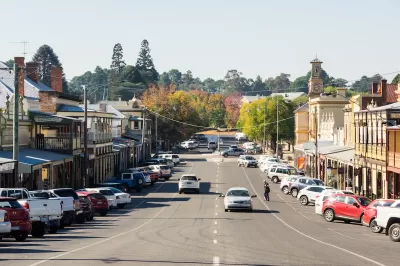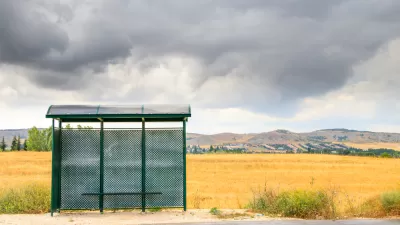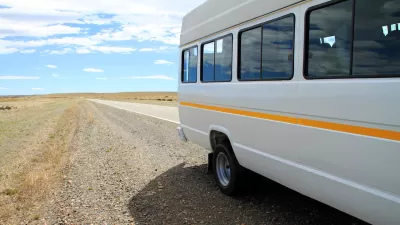On Transit Equity Day, reminding policymakers that rural communities need access to transit too.

In a piece for Transportation for America published on Transit Equity Day, Mehr Mukhtar calls for more resources for overlooked rural communities that often lack public transit options. Mukhtar notes that rural areas “perceived as areas that do not need access to transit due to the sprawling nature of the communities and assumed access to private vehicles.”
But that’s not true for many rural residents. “In reality, more than one million households in rural areas do not have access to a car. In fact, the majority of counties with zero-car households are in rural communities, highlighting the brazen need to invest in public transit.”
According to Mukhtar, “There are a lot of affordable, attainable solutions to encourage active and multimodal transportation in rural America. Implementing Complete Streets, more effective and multimodal-oriented land-use approaches, and strategic transit planning would all result in more mobility options for residents, as well as significant benefits, including healthier and more economically prosperous places.”
Rural areas can also be a primary beneficiary of on-demand microtransit, which can more flexibly serve areas with low populations and/or where fixed-route transit is impractical or too costly.
Ultimately, Mukhtar calls for more transit investment in overlooked rural communities. “By fostering equitable access to transportation options in rural communities, we can build more resilient areas where everyone can thrive.”
FULL STORY: Transit Equity Day highlights the need for transit in rural communities

Planetizen Federal Action Tracker
A weekly monitor of how Trump’s orders and actions are impacting planners and planning in America.

Map: Where Senate Republicans Want to Sell Your Public Lands
For public land advocates, the Senate Republicans’ proposal to sell millions of acres of public land in the West is “the biggest fight of their careers.”

Restaurant Patios Were a Pandemic Win — Why Were They so Hard to Keep?
Social distancing requirements and changes in travel patterns prompted cities to pilot new uses for street and sidewalk space. Then it got complicated.

Platform Pilsner: Vancouver Transit Agency Releases... a Beer?
TransLink will receive a portion of every sale of the four-pack.

Toronto Weighs Cheaper Transit, Parking Hikes for Major Events
Special event rates would take effect during large festivals, sports games and concerts to ‘discourage driving, manage congestion and free up space for transit.”

Berlin to Consider Car-Free Zone Larger Than Manhattan
The area bound by the 22-mile Ringbahn would still allow 12 uses of a private automobile per year per person, and several other exemptions.
Urban Design for Planners 1: Software Tools
This six-course series explores essential urban design concepts using open source software and equips planners with the tools they need to participate fully in the urban design process.
Planning for Universal Design
Learn the tools for implementing Universal Design in planning regulations.
Heyer Gruel & Associates PA
JM Goldson LLC
Custer County Colorado
City of Camden Redevelopment Agency
City of Astoria
Transportation Research & Education Center (TREC) at Portland State University
Camden Redevelopment Agency
City of Claremont
Municipality of Princeton (NJ)





























